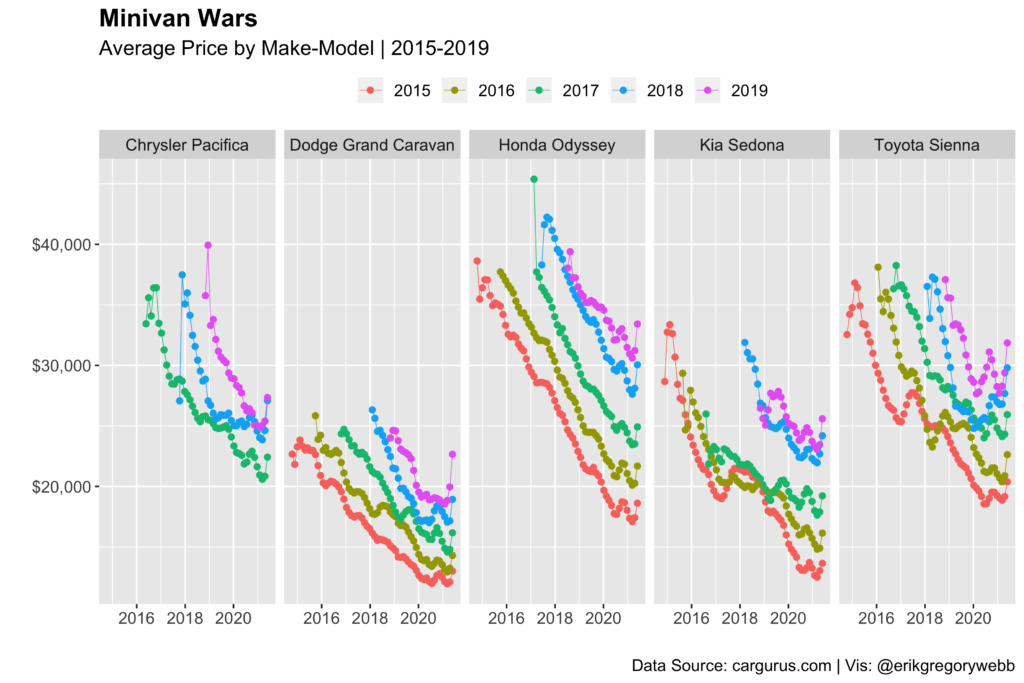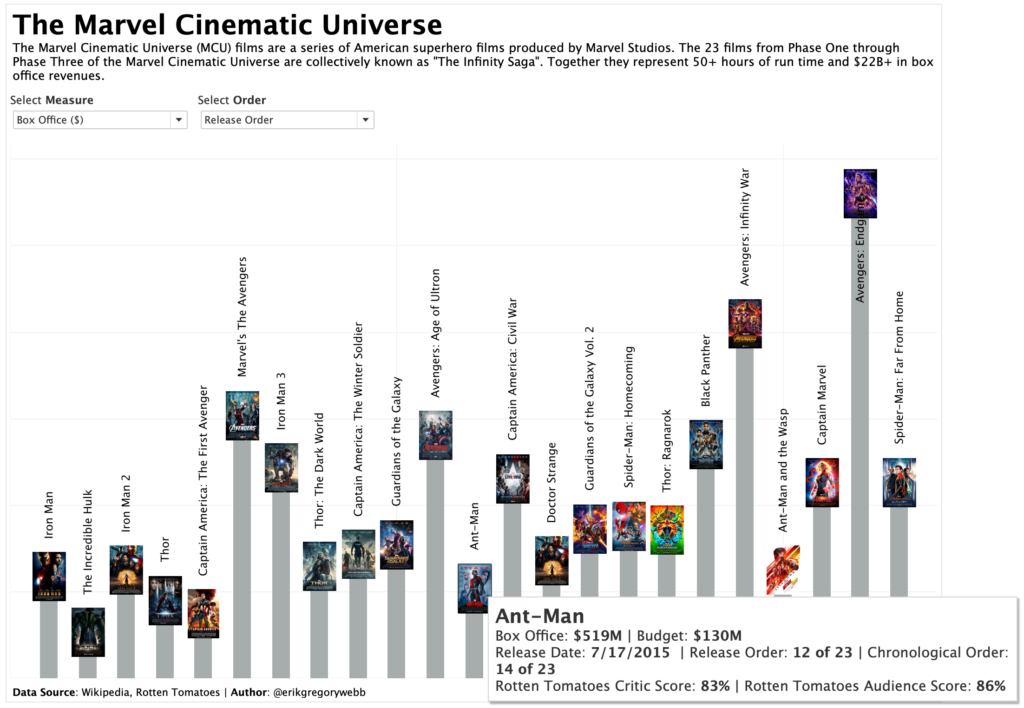With the recent birth of our second child, it was time to face a harsh reality: the impending necessity of a minivan. After trying to cope by dreaming up a list of alternative “family” cars, the truth set in: with young kids, features like sliding doors, captain chairs, and amble storage space can’t be beat.
Looking to get acquainted with prices in the used minivan market, I scraped 20 years’ worth of monthly average price data from CarGurus for five minivan models: Kia Sedona, Toyota Sienna, Chrysler Pacifica, Honda Odyssey, and Dodge Grand Caravan. May the best car win!

As one of the most visited car shopping sites in the United States, CarGurus tracks prices for millions of used car listings every year. With a bit of web scraping (using R), I compiled a dataset to visualize how car prices for used minivans have changed over time.
Here’s the result, for minivan models released between 2015 and 2019:

At first glance, my impression is that the Honda Odyssey and Toyota Sienna fall in the “premium” segment of the minivan market (You be the judge: is premium minivan an oxymoron?). On average, prices are higher compared to the Kia Sedona and Dodge Grand Caravan.
Second, I was struck by how steadily deprecation appears to occur for the Honda Odyssey. Roughly speaking, you can expect your Odyssey to depreciate by about $5k a year in the early years of ownership.
Finally, the impact of the COVID-19 pandemic and related semiconductor shortage becomes really clear in this picture. Notice the uptick in average price across the board for almost all make-model and year combinations. Because of the reduced supply of new vehicles (thanks to the semiconductor shortage), would-be buyers of new cars have moved into the used car market, driving up prices.
Bottom line, this visual helped me develop a better feel for the prices we’ll encounter in the used minivan market. You can find the script used to create the dataset here (and below), and the dataset itself here. Thanks for reading!



